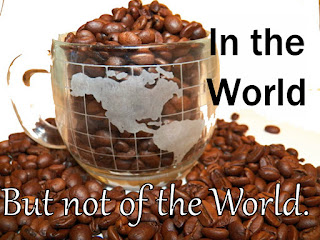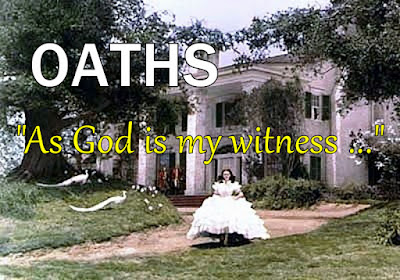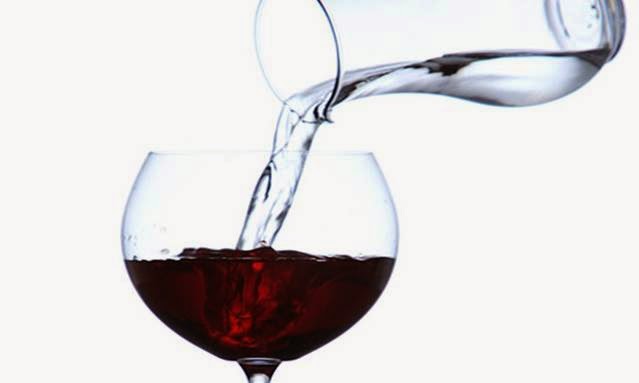THE LORD'S SUPPER
It's called the "Lord's Supper" because it was not only a sacrament instituted by Jesus, but it is also a story about the night that Christ gave himself up for ourselves. Like any good story, it has a background story that brings understanding to it. A good story also becomes alive to us in our own context. Lastly, a good story becomes part of our story and impacts our future perceptions and decisions. In other words, it has a past, a present and a future.
It just about broke my heart. I asked group of Christians what was most meaningful for them about Holy Communion. One man replied, "It's only meaningful to me during Lent."
What he had done was anchor the story of the sacrament to one point in time. It had become an act of memorial, remembering it as an event of the past, limiting its significance and importance to us as Christians. As we unpack the Lord's Supper, we'll understand why we should never use the term, "Last Supper."
When Jesus gathered his disciples together in the upper room for the Passover meal, as God has often been know to do, he did a new thing. The Passover was given to the Israelites by God as a tradition they were commanded to follow every year. They do it in remembrance of God's delivery of them out of slavery in Egypt. Each generation who celebrates it remembers that they are God's people and God is still present with them. It is also a reminder of hope, I think, that when hardship befalls them, God will always keep the covenant he made to Abraham and to his descendants. God will always be their God, and they will always be God's people.
During the Passover feast he hosted, Jesus added to the story, telling his followers how he would fulfill the law and how God was opening the covenant to all people through him.
When we gather at the Lord's table, in remembrance with thanksgiving, we tell the story of how God, the source of our life, created us in God's image to love and to be loved. Even when we rejected God and went our own way, God never stopped loving us, never gave up on us.
To the Israelites whom God delivered from slavery, God made a promise to them and us that God would be our God and we would be God's people.
Through the life, death and resurrection of God's Son, Jesus Christ, we were delivered from slavery to sin and death, and by water and spirit, God made a new promise that through Christ, God will be our God, and we will be God's people.
So, we tell this story, whose roots go back to the beginning of time and will continue on through generation after generation into the future:
On the night Jesus gave himself up for us, he took bread, gave thanks to his Father, Our Father, and gave it to his disciples, and said:
"Take, eat; this is my body which is given for you. Do this, remembering what God has done for you, what I am doing for you now and what I will do for you in the future."
When the supper was over, he took his cup. After giving thanks to Our heavenly Father, he passed his own cup to each of his disciples, saying:
"Drink from this cup, all of you This is my blood of the new covenant poured our for you and for many for the forgiveness of sin. As often as you drink of this, remember what God has done for you, what I am doing for you now and what I will do for you in the future."
The Lord's Supper should not be thought of a memorial to a one-time event but rather a celebration of the continual out-pouring of God's grace throughout the history of humanity to the present and onto future generations. It is a witness to the mystery of our faith:
Christ has come; Christ has died; Christ has risen; Christ is present now among us; Christ will come again.
During the Passover feast he hosted, Jesus added to the story, telling his followers how he would fulfill the law and how God was opening the covenant to all people through him.
When we gather at the Lord's table, in remembrance with thanksgiving, we tell the story of how God, the source of our life, created us in God's image to love and to be loved. Even when we rejected God and went our own way, God never stopped loving us, never gave up on us.
To the Israelites whom God delivered from slavery, God made a promise to them and us that God would be our God and we would be God's people.
Through the life, death and resurrection of God's Son, Jesus Christ, we were delivered from slavery to sin and death, and by water and spirit, God made a new promise that through Christ, God will be our God, and we will be God's people.
So, we tell this story, whose roots go back to the beginning of time and will continue on through generation after generation into the future:
On the night Jesus gave himself up for us, he took bread, gave thanks to his Father, Our Father, and gave it to his disciples, and said:
"Take, eat; this is my body which is given for you. Do this, remembering what God has done for you, what I am doing for you now and what I will do for you in the future."
When the supper was over, he took his cup. After giving thanks to Our heavenly Father, he passed his own cup to each of his disciples, saying:
"Drink from this cup, all of you This is my blood of the new covenant poured our for you and for many for the forgiveness of sin. As often as you drink of this, remember what God has done for you, what I am doing for you now and what I will do for you in the future."
The Lord's Supper should not be thought of a memorial to a one-time event but rather a celebration of the continual out-pouring of God's grace throughout the history of humanity to the present and onto future generations. It is a witness to the mystery of our faith:
Christ has come; Christ has died; Christ has risen; Christ is present now among us; Christ will come again.




Comments
Post a Comment